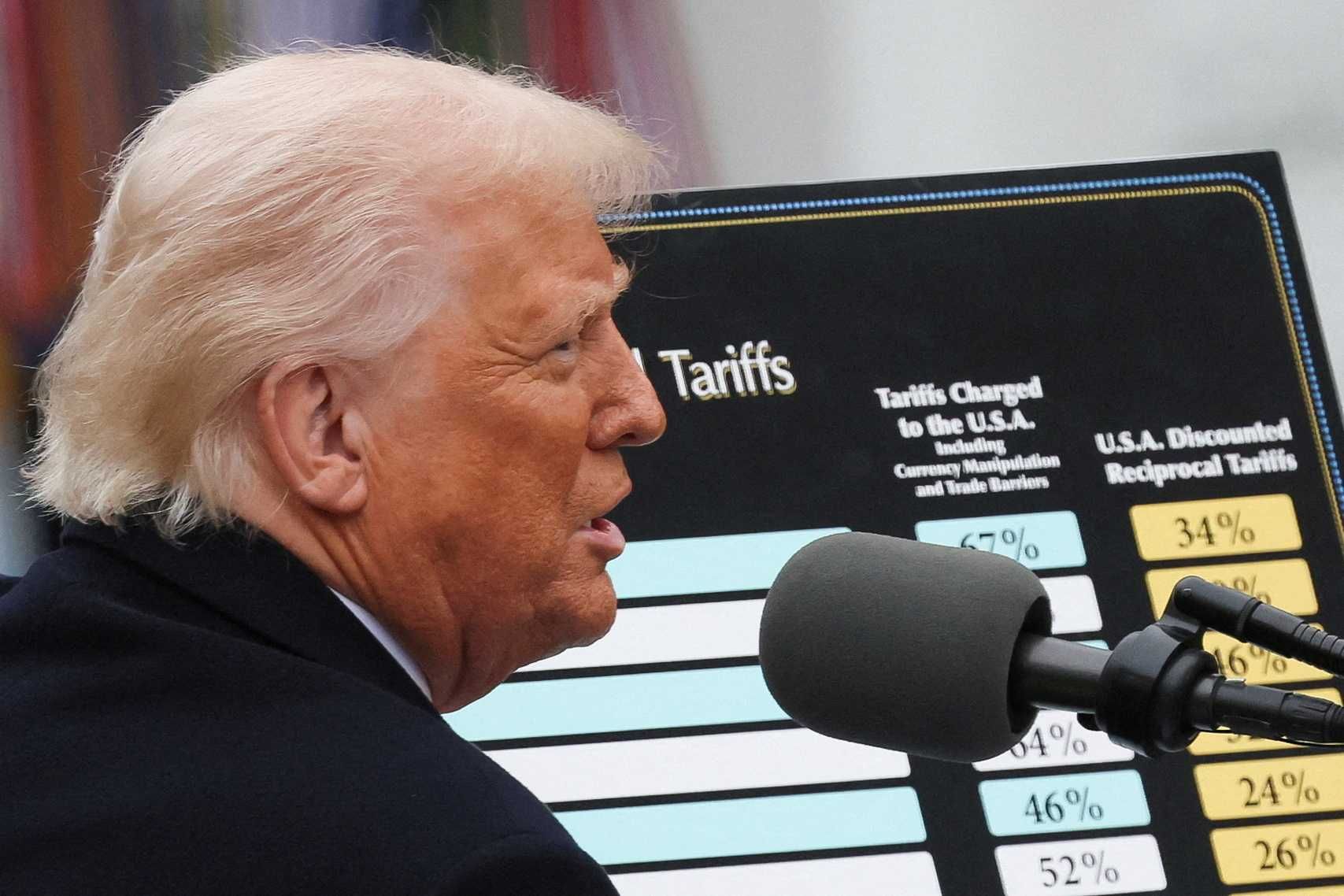Arguments before the Supreme Court on the legality of President Donald Trump’s tariffs officially wrapped up Wednesday afternoon, and betting markets are now predicting the court will issue a decisive blow to Trump’s key economic policy, The Wall Street Journal reported.
Trump’s tariffs he implemented earlier this year were soon challenged by business owners who say issuing tariffs is outside of the president’s authority, challenges that quickly rose to the Supreme Court.
Polymarket, a betting platform where users can place bets on future events, had the odds of the Supreme Court ruling in favor of Trump’s tariff policy as high as 52% on Sept. 4, according to the Journal. By Nov. 4, those odds decreased to 36%, but after a skeptical Supreme Court heard arguments Wednesday from Trump administration lawyers in defense of the tariffs, those odds plummeted even further to 22%.
Another betting platform, Kalshi, also saw the odds of a Trump victory before the court plummet Wednesday, with the Journal reporting that the president’s chance at victory dropped from 41% to 30% after arguments before the court concluded.
Trump had originally intended on attending the Supreme Court case in person on Wednesday, but ultimately backed out, saying he did “not want to distract” the court. He did go on, however, to warn that should the court rule against his authority to issue tariffs, the United States “could be reduced to almost Third World status.”
In his stead, Treasury Secretary Scott Bessent did decide to attend Wednesday’s Supreme Court hearing, telling Fox News’ Jesse Watters that he would “have a ringside seat” with the intention emphasizing to the justices “that this is an economic emergency,” The New York Times reported.
The authority to impose tariffs largely rests with Congress, though Trump has argued that a 1977 law – the International Emergency Economic Powers Act – grants him broad authority to impose tariffs in response to emergencies, with the emergency in question, according to Trump, being the United States’ trade deficits with other countries.
